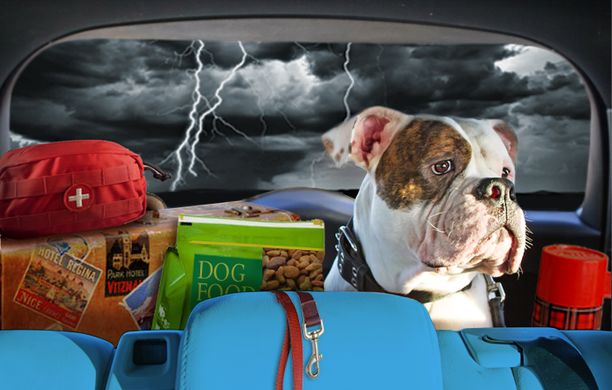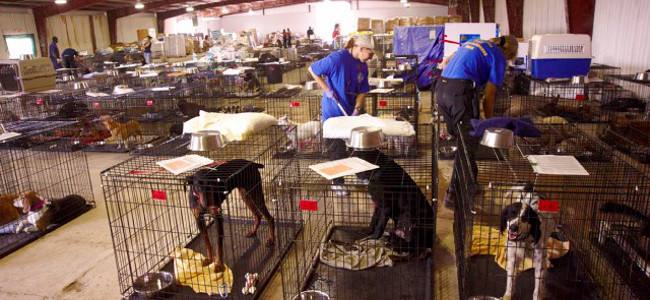
Pet-friendly emergency shelters? In case of evacuation where can you go with your buddies?
In case of disaster or emergency, be prepared for evacuation is essential. Time is gold and the right preparation may make you gain time. When a disaster comes how to find pet-friendly emergency shelters?
Often, when a disaster comes could not be forecasted, for example, earthquakes, or wildfires. They just happen and you can only assist impassible to its consequences or, be prepared to face consequences! A family is not composed only by humans. Pets are part of our lives and are part of our family, too. Be prepared also for them to escape is so much important and easy. Sometimes you are forced to evacuate your home and move to an emergency shelter. However, for public health reasons, many emergency shelters cannot accept pets and other animals. So, what to do? How to find pet-friendly emergency shelters?
Have you already thought about the preparedness kit for your buddies? Read HERE how to do it!
The Center for Disease Control and Prevention reports that before a disaster strikes, you should better find out what type of shelters and assistance are available in your area to accommodate pets. This information can help you include pets in your disaster plan to keep them safe during an emergency. Don’t wait until it’s too late. Start today by including your pet in your family’s preparedness plans to protect the health of yourself, your family, and your pet.
Pet-friendly emergency shelters in case of disaster: how to find them?
So, be sure that your province or region had an emergency plan in case of disaster and ask for a pet-friendly emergency shelter. Better if you ask for more than one so that in case geology of territory might change for a flood or a quake, you have more than one reference. In case of emergency and if you will have the possibility, you will have a sure destination to reach that will host you and your buddies.
For a double certainty, ask for some out-of-town relative or friend who would agree to host your family, including your pets. Locate also boarding facilities or animal hospitals near your evacuation shelter and in the case you are unable to return home right away.
In the US since Hurricane Katrina struck New Orleans in 2005, major changes have been made to federal and  state emergency planning laws with respect to animals. At the time, there were no laws that required that animals be evacuated, rescued or sheltered in an emergency. As a result, federal and state laws have been passed to include provisions for evacuation of animals, rescue and recovery, shelters and tracking in disaster plans. In 2006, the federal Pets Evacuation and Transportation Standards (PETS) was passed. PETS directs the Administrator of the Federal Emergency Management Agency (FEMA) to develop emergency preparedness plans and ensure that state and local emergency plans take into account the needs of individuals with pets and service animals during a major disaster or emergency. Since then, over 30 states have adopted either a law that deals with disaster planning and pets or have made known administrative plans on the subject. PETS Act FAQ
state emergency planning laws with respect to animals. At the time, there were no laws that required that animals be evacuated, rescued or sheltered in an emergency. As a result, federal and state laws have been passed to include provisions for evacuation of animals, rescue and recovery, shelters and tracking in disaster plans. In 2006, the federal Pets Evacuation and Transportation Standards (PETS) was passed. PETS directs the Administrator of the Federal Emergency Management Agency (FEMA) to develop emergency preparedness plans and ensure that state and local emergency plans take into account the needs of individuals with pets and service animals during a major disaster or emergency. Since then, over 30 states have adopted either a law that deals with disaster planning and pets or have made known administrative plans on the subject. PETS Act FAQ
After the devastation of Hurricane Katrina, local Emergency Management teams are now required by Federal Law to have readiness plans and resources available to help citizens and their pets in the event of a disaster. AKC Pet Disaster Relief helps local Emergency Management provide animal care services immediately following a disaster. AKC Pet Disaster Relief trailers are stocked with essential, nonperishable necessities for sheltering pets. The supplies can be used to create a safe, temporary home-base for displaced animals and can be used to create one of two types of animal shelters. Co-location Shelters: A shelter that houses both humans and their animal companions. The people housed at the shelter are responsible for their animal’s general care. Lost and Found Pet Shelters: Displaced animals are housed in what often becomes a pop-up reunion center as people and animals are reunited. Approved volunteers and shelter staff provide animal care.



